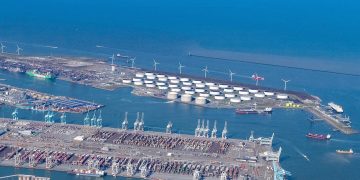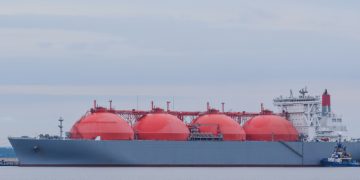The introduction of SIRE 2.0 in September marked a pivotal turning point in maritime safety and inspection practices with shipowners and operators being forced to operate with more transparency and accountability under the new inspections system, notes Fabian Fussek, Co-Founder & CEO, Kaiko Systems.
This updated framework aims to offer a more dynamic way of evaluating vessel quality and operator performance. While the industry has largely welcomed this change, the past few months have also highlighted the hurdles involved in adapting to such a significant shift.
SIRE 2.0 moves beyond traditional checklist-style inspections to embrace a comprehensive, real-time assessment of vessel operations.
This shift acknowledges that safety isn’t about ticking boxes but about continuous improvement. It’s a mindset that aligns with modern safety expectations, offering actionable insights that go deeper than surface-level compliance.
Initial feedback from the industry has been mixed but largely positive. Operators have praised the new system’s emphasis on accountability and transparency, especially the enhanced digital reporting tools that make data sharing and analysis more efficient.
At Kaiko Systems, we’ve seen firsthand how technology can simplify this process. Our platform is specifically designed to make SIRE 2.0 inspections easier and more transparent for seafarers and operators alike. The influx of calls we received in September from shipowners and managers eager to adopt our solution underscores the strong demand for tools that streamline compliance while enhancing operational clarity.
The updated inspection protocols demand more preparation and coordination from shipowners, operators, and crews. Companies accustomed to a more reactive approach have had to make significant adjustments. The learning curve has also been steep for inspectors and operators. Despite training programmes being rolled out before the launch, many in the field feel more time and resources are needed to fully embed these new practices.
The increased emphasis on real-time assessments of crew tasks, such as navigation and cargo operations, has brought a sharper focus on human factors. For navigation, inspectors now assess how crews manage situational awareness, route planning, and adherence to safety protocols while vessels are underway. This real-time monitoring ensures that navigational practices align with both safety standards and operational efficiency.
Similarly, for cargo operations, inspectors evaluate the crew’s ability to handle cargo safely, adhere to environmental guidelines, and execute procedures without error. These focused evaluations aim to highlight best practices while identifying areas for improvement. Platforms like Kaiko Systems make these processes more manageable by providing tools that offer practical guidance and links tasks to specific SMS procedures, reducing workloads and empowering crews to excel under the new framework.
Technology has been central to the rollout of SIRE 2.0. Digital platforms like ours are enabling seamless data collection and reporting, providing stakeholders with accessible, actionable insights. By simplifying these processes, we’ve helped operators focus more on safety and less on administrative burdens.
The overwhelmingly positive response to our platform highlights the industry’s appetite for tools that make achieving compliance straightforward and efficient. ridging the digital divide for smaller operators, however, remains an ongoing challenge that requires collective effort.
Looking ahead, the success of SIRE 2.0 will depend on the maritime sector’s willingness to embrace long-term change.
From our experience, the data generated by SIRE 2.0 has already begun uncovering trends that operators can act on proactively. To really make an impact, the industry must embrace integration and data sharing to facilitate further efficiency gains in the administrative process.
There is still more work to be done on the integration of data from each side on the The Oil Companies International Maritime Forum (OCIMF) platform. By streamlining and integrating the process, the industry can learn from the issues identified, implement industry best practices and drive continuous improvement.
Training, technology, and cultural shifts also need continuous support to fully realise the programme’s potential. Strong data governance and a commitment to transparency will also be critical in navigating these changes
The launch of SIRE 2.0 represents a pivotal moment for maritime safety. By prioritising accountability, leveraging technology, and focusing on the human element, we can build a safer future for maritime operations. Safety, after all, is an ongoing journey, not a final destination. The success of SIRE 2.0 will ultimately depend on our ability to adapt, collaborate, and innovate together.



























































